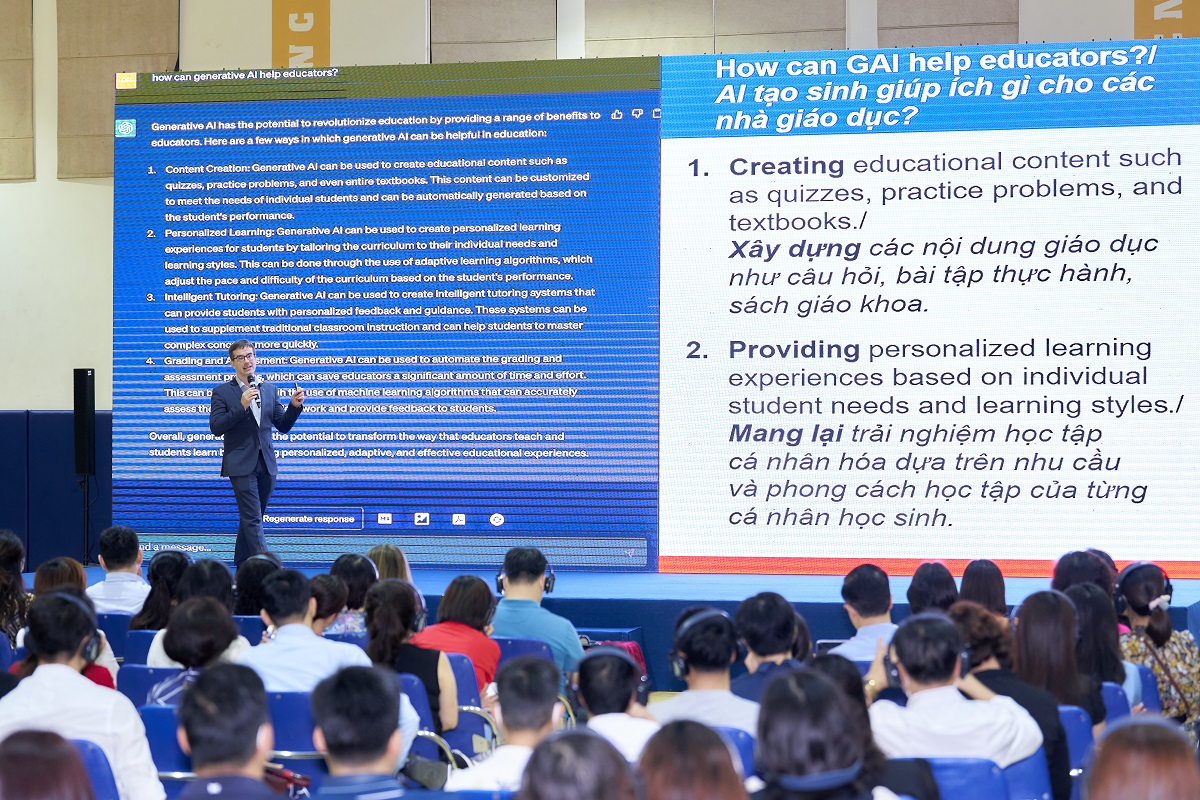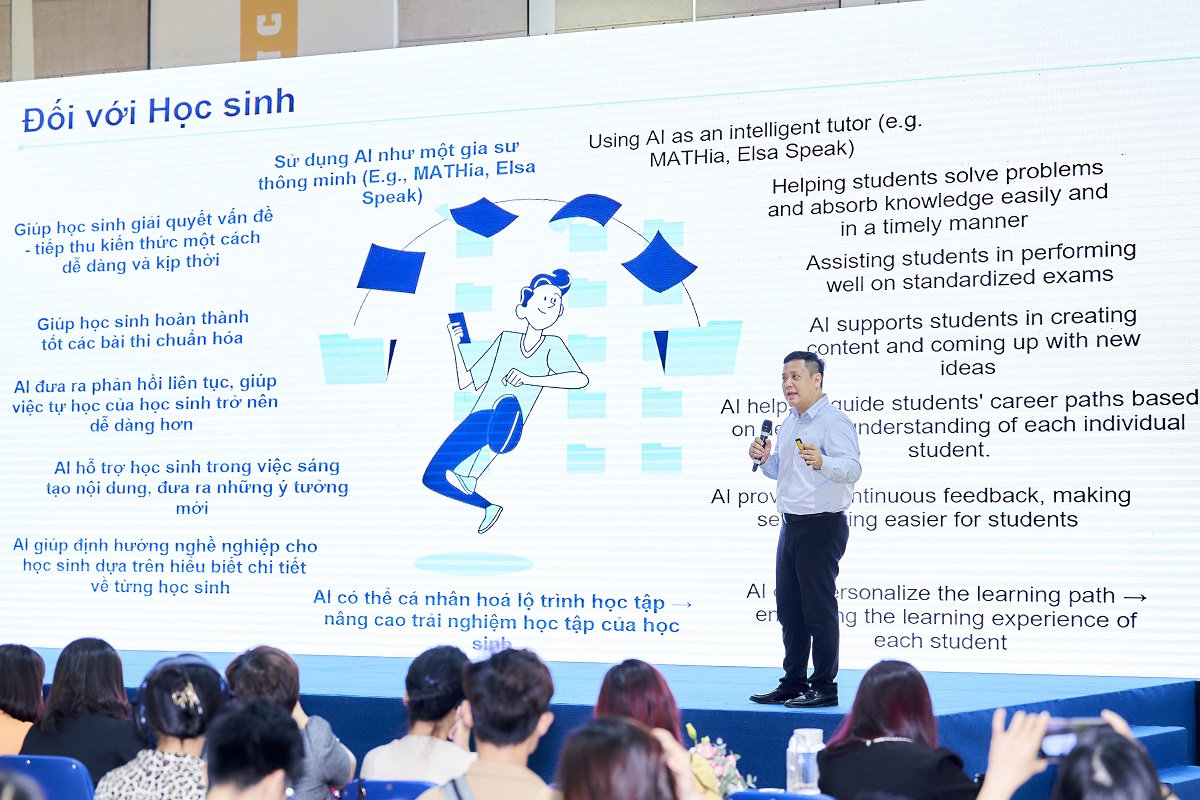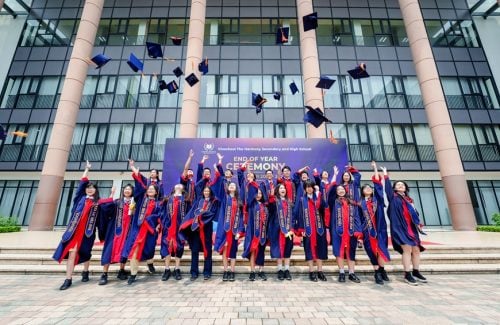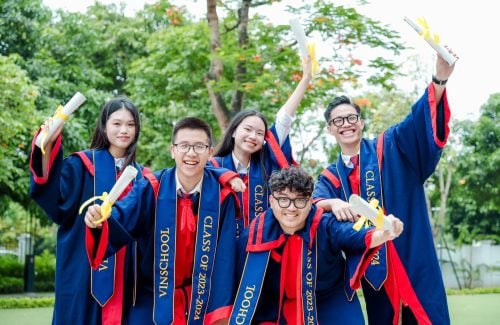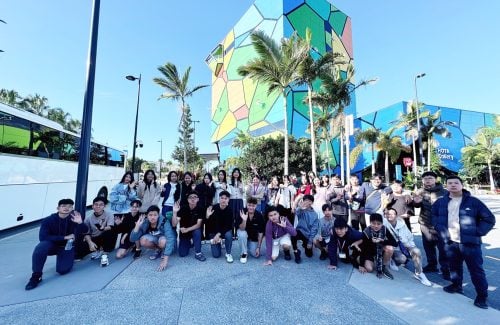Is Artificial Intelligence Redefining Education?
How will the rapid development of artificial intelligence (AI), machine-learning technology, and the recent advent of ChatGPT impact the education sector and support teaching and learning? How should educators be prepared in face of the increasing expansion of AI?
These are the main issues discussed by the speakers at a conference entitled “Is artificial intelligence redefining education?” organised by Vinschool Education System on April 22. The event featuring discussions of top AI experts and educational leaders, attracted the online and in-person participation of almost 1,000 teachers, educational administrators, parents, students, and people interested in education in general.
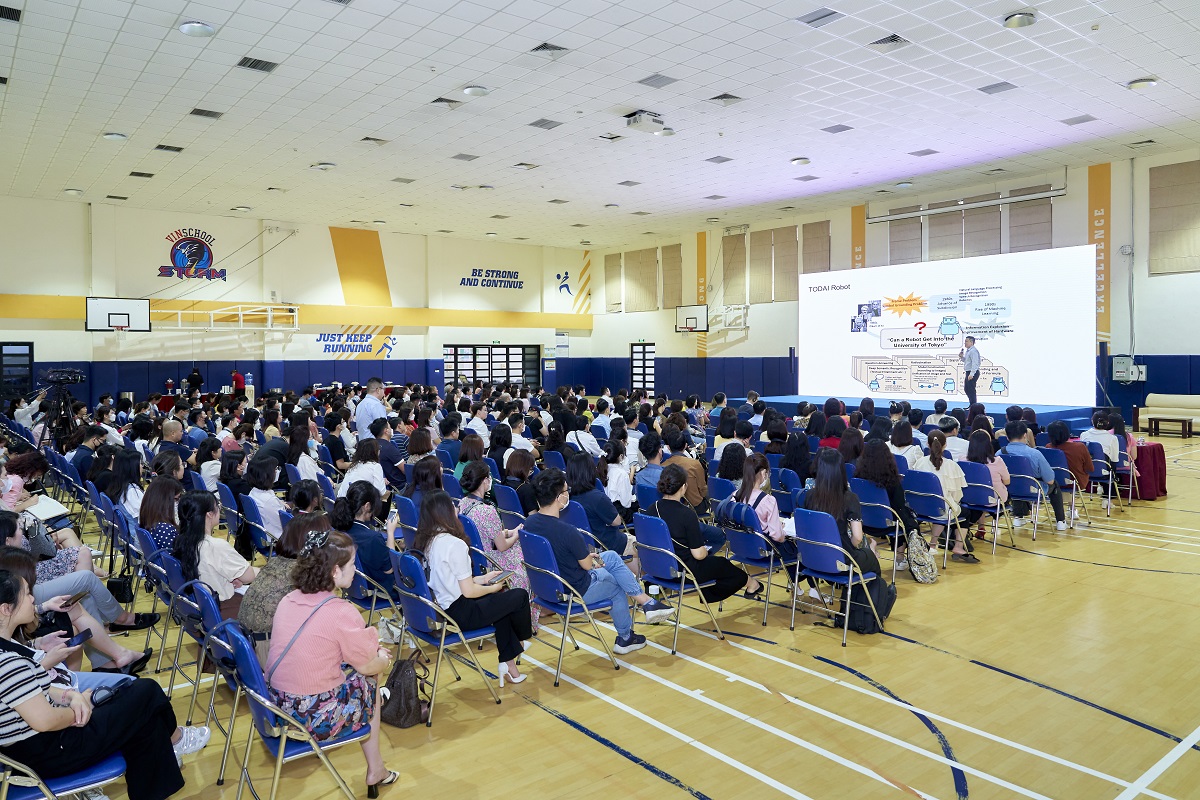
At the event, Đặng Trần Thái, Chief of the Natural Language Processing Department at VinBigData provided teachers, researchers, educational managers and those interested in new educational trends with an overview of AI and the operating principles of AI systems. He pointed out that with data-based operation and the ability to process large volumes of data in a minimal amount of time, AI could have positive impacts on the education sector as it quickly provides users with accurate information, helping them search for and acquire new knowledge.
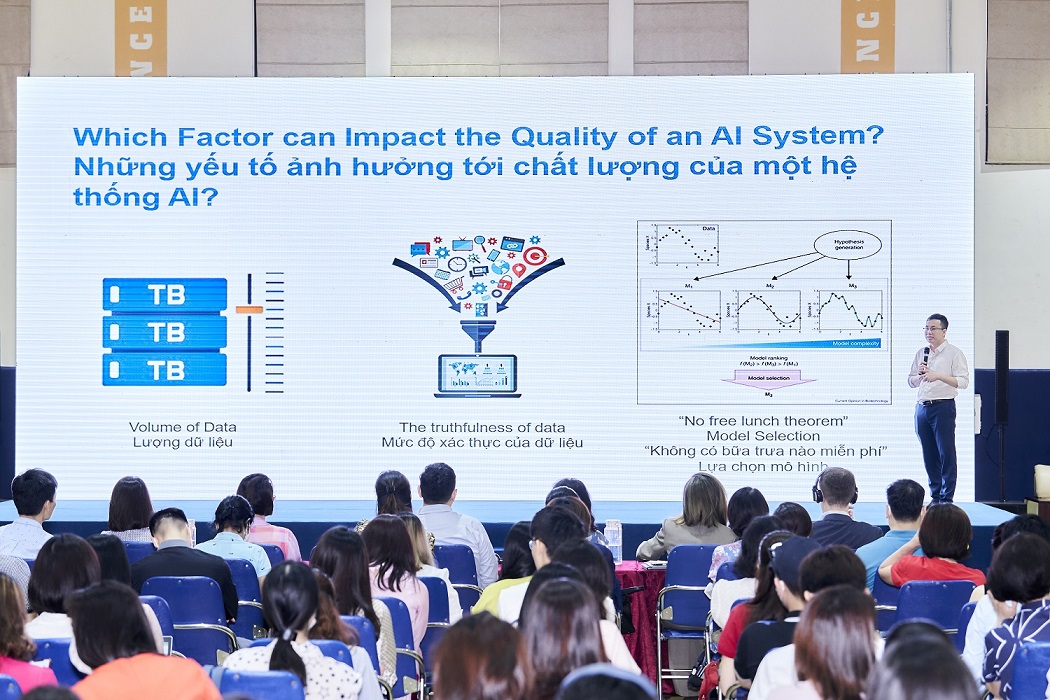
Mr. Daniel Ruelle, Director of Learning Excellence Center at VinUniversity clarified the benefits of AI such as reducing teachers’ workload by creating teaching contents like questions, exercises, outlines; giving students personalised learning experiences based on their needs and styles; setting up a smart tutoring system; providing personalised feedback and guidance; and automating the scoring and assessment process based on machine learning algorithms.
Mr. Daniel Ruelle – Director of the Learning Excellence Center at VinUniversity spoke at the conference
Dr. Lê Anh Vinh, Director General of the Vietnam Institute of Educational Sciences, said that AI was useful not only for teachers’ teaching but also for students’ learning. Specifically, it helps personalise students’ learning pathways, enhances their experience; helps them solve problems, acquire knowledge easily and promptly, complete standardised tests, create content, put forth new ideas, and give them career orientation based on detailed understanding about them.
Dr. Lê Anh Vinh from the Vietnam Institute of Educational Sciences delivered a presentation at the conference
Can AI replace teachers?
Despite the aforementioned advantages, experts at the conference agreed that AI could not replace teachers. It would be an effective tool for teachers, which facilitates the development and advancement of the educational sector.
“Don’t be afraid of ChatGPT. The mission of education is to use ChatGPT effectively and minimise its negative impacts”, said Dr. Lê Kim Long, Former Rector of VNU University of Education, at the Conference.
As AI can undertake and support regular tasks, teachers need to have the ability to self-study, continuously update and develop themselves, and improve teaching methods to take the educational roles that AI cannot.
Instead of sharing knowledge and content, which can be done even better by AI, teachers should play a more active role in equipping students with soft skills and skills related to emotional competence. AI can never replace them in these aspects.
As for educational program creators and managers, there needs to be a change in the distribution of learning components by reducing the load of knowledge and content, and strengthening 21st century skills, including critical thinking, creativity, teamwork skills, flexibility, technological proficiency, etc.
How to get students prepared for the age of AI?
Updating teaching content to train students to become true digital citizens, exploit the benefits of AI and identify risks and ethical concerns was also a task assigned by Ms. Phan Ha Thuy, CEO of Vinschool Education System at the conference.
“In doing so, we will help students acquire Intelligence Augmentation (IA)“, Ms. Thuy emphasized.
To get teachers and students prepared to optimize the benefits of AI in learning and teaching, Vinschool Education System has adopted a human-AI collaboration program framework, which introduces a new educational approach towards Intelligence Augmentation, outcome-based education (OBE) (aimed at emphasizing skills and competencies towards Intelligence Augmentation), and get students prepared for success in a world where humans and machines collaborate to create outstanding achievements.
In particular, critical thinking skills for students have become more important than ever in the age of AI, Ms. Thuy highlighted. Students need to develop critical thinking skills to evaluate and select responses from AI tools, develop the habit of verifying the accuracy and reliability of information, and consider their weaknesses.

